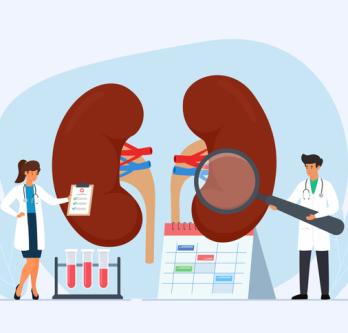We're hiring ! Join us and make a difference in our hospitals
Kidney Failure
What is Kidney Failure?
Kidney failure in a child is a condition where the kidneys do not function properly to remove waste and excess fluid from the body. It can be acute or chronic. Common causes of kidney failure in children include congenital abnormalities, kidney infections, autoimmune diseases, and genetic disorders. Symptoms may include decreased urine production, fluid retention, fatigue, loss of appetite, and slowed growth.
Treatment may require medications to support kidney function, specific dietary plans, dialysis, or kidney transplantation. Regular follow-up with a pediatric nephrologist is essential for proper management of kidney failure in children.

Tips for Parents
The medical team consists of pediatric nephrologists, specialized nurses, dietitians, and psychologists. All these healthcare professionals work closely together within the Nephrology Unit to develop a personalized treatment plan for children suffering from kidney failure. Examinations and analyses are conducted to assess and identify the cause of kidney failure in the child.
- Treatment may include medications to control hypertension, reduce inflammation, maintain electrolyte balance, and stimulate urine production. Special attention is given to nutrition, with a specific dietary plan designed to minimize renal burden and optimize the child's growth and development.
- In severe cases, regular dialysis may be necessary to remove waste and excess fluids from the body. Kidney transplantation is the only reasonable long-term option for children with advanced chronic kidney failure. Even after a transplant, close monitoring is ensured to prevent rejection and monitor kidney function.
- Psychological, educational, and social support is provided to children and their families to help them cope with the challenges associated with kidney failure. At the Children's Hospital, we do everything in our power to enhance the quality of life for the child and their family.
Guidelines
- Pay close attention to signs of your child's health deteriorating, such as decreased appetite, excessive fatigue, weight loss, fluid retention, or changes in the quantity or color of urine.
- Carefully follow the advice of dietitians to ensure a diet suitable for your child's kidney failure, limiting certain nutrients like salt, proteins, or potassium.
- Ensure that your child takes prescribed medications correctly, adheres to dosing schedules, and does not discontinue them without medical advice.

